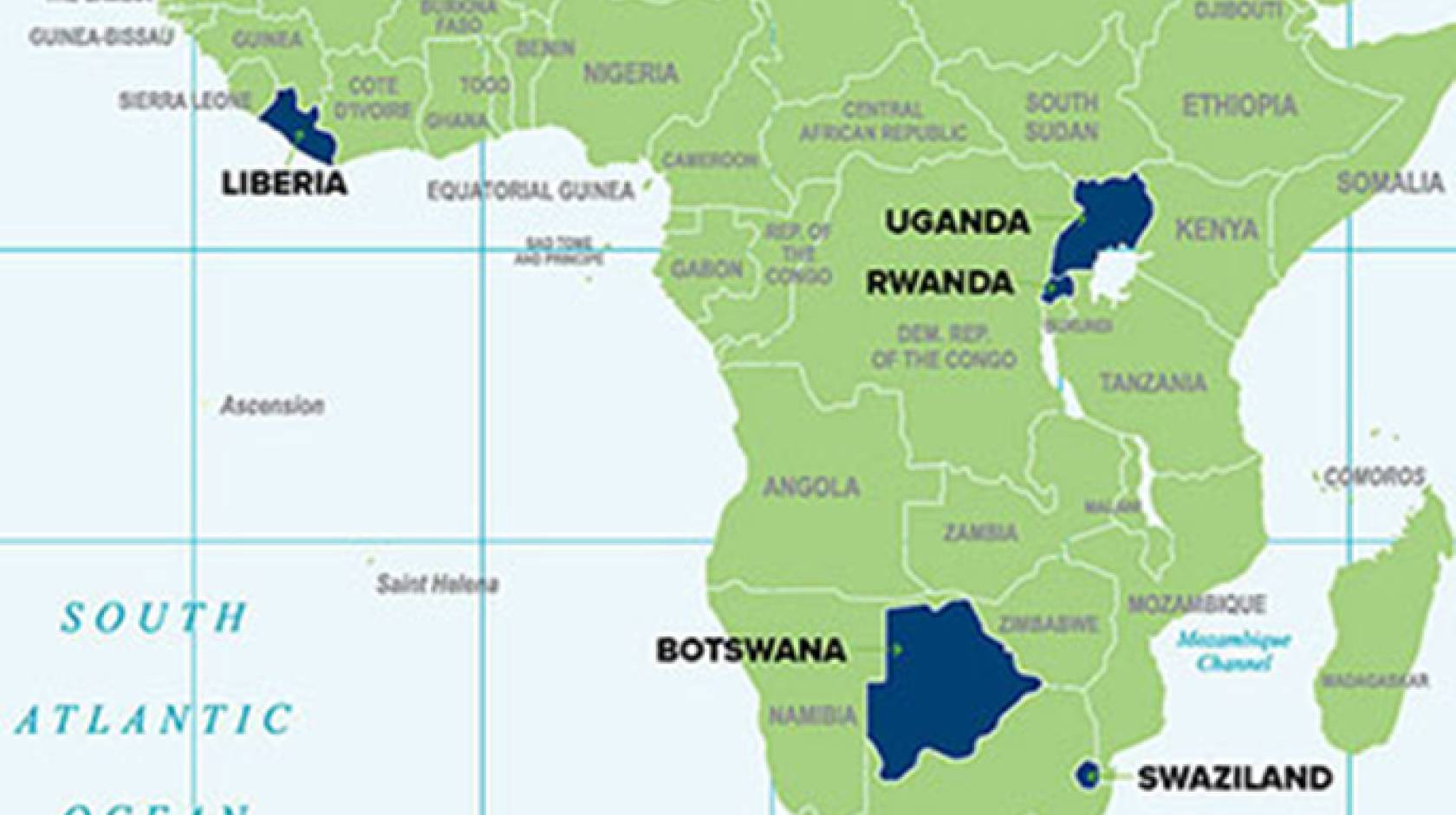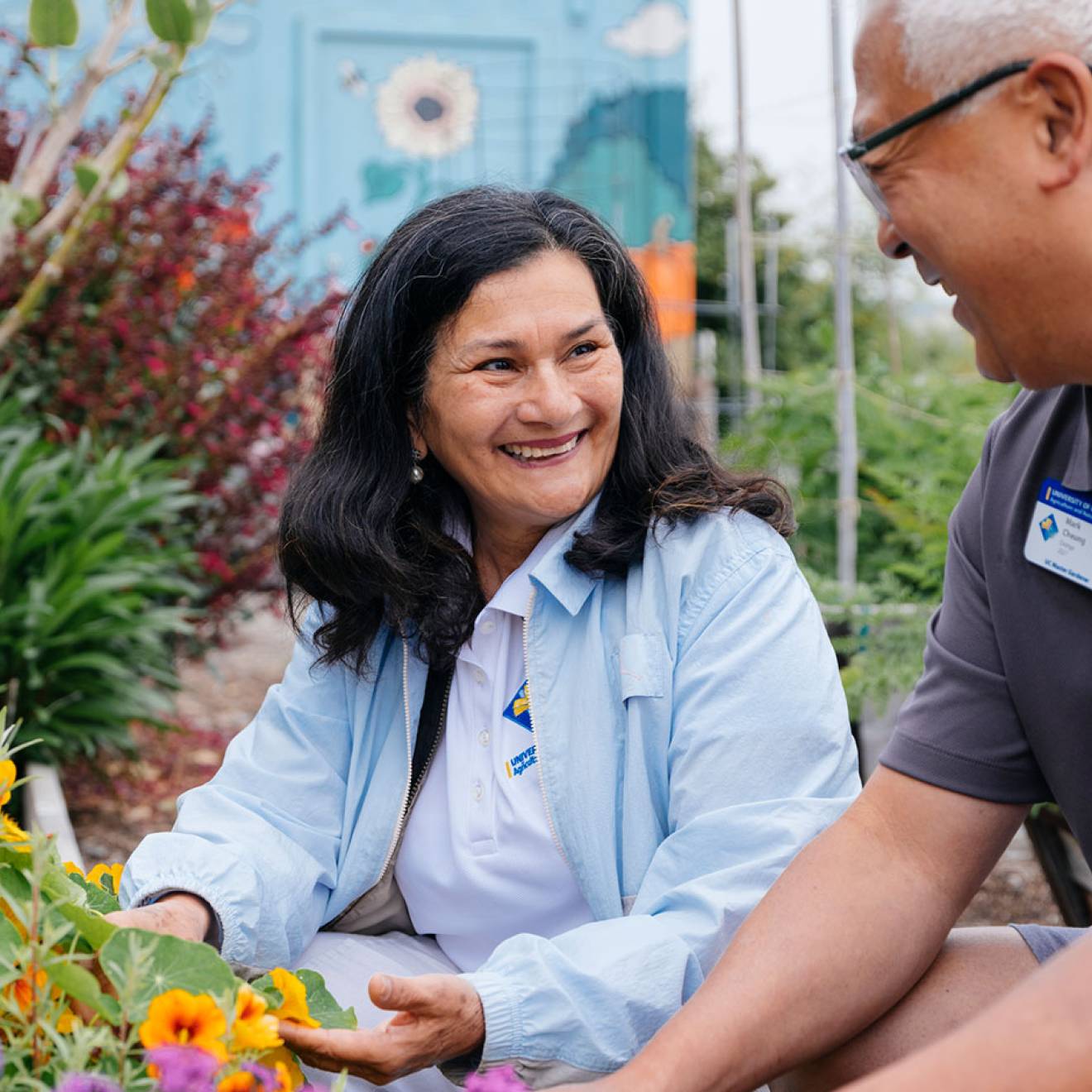Carole Gan, UC Davis

Regina Gandour-Edwards, a UC Davis surgical pathologist with expertise in diagnosing genitourinary tumors such as prostate and bladder cancer and training the next generation of physicians, is one of 14 specialists participating in an innovative telepathology program that is giving patients in underserved areas of sub-Saharan Africa and Haiti access to rapid cancer diagnostics, care and treatment.

The program, sponsored by the American Society of Clinical Pathology in collaboration with the Clinton Foundation, completed its first consultation in May at the pilot site at the Butaro Cancer Center of Excellence in northern Rwanda. Over the next three years, there are plans to create similar telepathology pilot sites in Botswana, Uganda, Haiti, Swaziland, Lesotho and Liberia.
“Cancer is the leading cause of death in many low- and middle-income countries because there aren’t enough pathologists or laboratory professionals using advanced technology to provide accurate and timely diagnoses,” Gandour-Edwards said. “With many cancers undiagnosed or diagnosed too late for treatment to be effective, there is a tremendous need to collaborate with health system leaders in developing countries to find cost-effective solutions that increase access to more reliable and comprehensive cancer diagnostics to save lives.”
The Butaro Cancer Center is a national referral hospital for cancer care established in 2012 as a joint venture between the Rwandan Ministry of Health, the Clinton Health Access Initiative and the Boston-based nonprofit, Partners in Health. Housed within Butaro Hospital, the center includes a 27-bed cancer ward and a weekly cancer outpatient clinic, which provides complex cancer care for poor, rural-based patients.
Like many low- and middle-income countries, the Butaro center does not have an on-site pathologist to evaluate cells and tissues under a microscope to make a definitive cancer diagnosis. The World Health Organization estimates that there is only one pathologist for every one million people in sub-Saharan countries, compared to one pathologist for every 20,000 people in the U.S.
“Advanced telecommunications technology has really created a golden opportunity to bridge the gap in cancer diagnosis and care,” Gandour-Edwards said. “Instead of local clinicians having to rely on visiting pathologists from their own country or the U.S. to provide expert cancer diagnostics, this pilot project is enabling Rwandan physicians to upload complete virtual microscopic images of a biopsy or specimen into a cloud-based system, which I can view and manipulate in any way. I can change the magnification and look at every aspect of the slide to produce a complete diagnostic report.”
Omnyx LLC, a joint venture of GE Healthcare and UPMC, provided the telepathology equipment, workflow software, supplies and technical support for the automated histopathology systems used to scan and display patient biopsy images.
For more information about the telepathology project in the developing world and the Clinton Global Initiative Commitment to Action, visit www.ascp.org/globalimpact.

